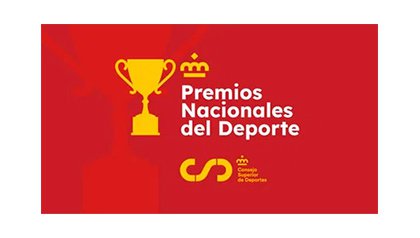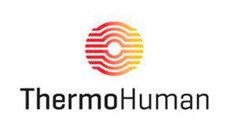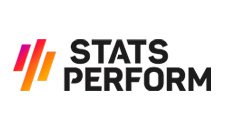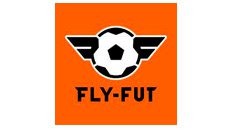Master in Sports Analytics
The Master's in Sports Analytics at the Escuela Universitaria Real Madrid Universidad Europea is an intensive 9-month program designed for those who aim to lead the digital transformation of the sports industry. Through a comprehensive and applied approach, you will be trained in every stage of the data cycle: from collection and interpretation to visualisation, modelling, and strategic communication.
What will you learn during the program?
- Programming with R and Python, focused on processing and modeling sports data.
- Machine learning to predict behavior and performance patterns in athletes and teams.
- Computer vision applied to the automatic analysis of images and video in sports contexts.
- Tactical intelligence to interpret the game and optimize competitive strategies through data.
- Data-driven scouting, learning to identify talent and evaluate player potential through objective metrics, performance algorithms, and predictive models.
- Ticketing and fan engagement analysis to understand fan behavior, optimize pricing, capacity, and loyalty strategies.
Live the Real Madrid experience. You will carry out your professional internship at Real Madrid C.F., one of the most innovative clubs in the world in the use of data. In addition, during the program, you will have the opportunity to embark on an international trip and discover how different countries manage and use data.
See the master's version in Spanish: Máster en Big Data y Análisis de Datos en el Deporte
Private degree issued by Universidad Europea de Madrid
Classes in English | Villaviciosa de Odón | Start: October 2026 | Faculty of Medicine, Health and Sport | Escuela Universitaria Real Madrid Universidad Europea |
A globally prestigious master’s program
Study plan
Study plan structure
Module 1 - Introduction to the sports ecosystem (3 ECTS)
- Comprehensive overview of professional sports club structures and organizations.
- Key departments, roles, and processes in modern sports management.
- The transversal role of data: its impact on decision-making across sporting, medical, financial, and communication domains.
- Embracing a data-driven culture within sports organizations.
- Real-world examples of data-centric structures in various sports.
Module 2 - Fundamentals of sports analytics (6 ECTS)
- Historical evolution of sports analytics: from observational analysis to machine learning.
- Core statistical principles and their application in sports.
- Types of sports data (tracking, eventing, biometric, GPS, etc.).
- Introduction to ETL processes and the data lifecycle in sports.
- Case studies on data-informed decision-making across club departments.
Module 3 - Management and architecture of sports databases (6 ECTS)
- Foundations of relational (SQL) and non-relational (NoSQL) database design and management.
- Structuring databases to efficiently store and query sports data.
- Practical introduction to SQL tailored to sports databases.
- Integrating data from multiple sources and providers (tracking, scouting, external platforms).
- Data privacy and security protocols in athlete data management.
Module 4 - Programming for sports analytics: R, Python & advanced visualization tools (12 ECTS)
- Hands-on introduction to R and Python for sports data analysis and modeling.
- Data cleaning, transformation, and analysis using tidyverse and pandas.
- Building predictive and descriptive models with scikit-learn and caret.
- Advanced data visualization: dashboards with ggplot2, plotly, seaborn, and interactive libraries.
- Essentials of Tableau and Power BI for rapid reporting and executive dashboards.
- Automating visual reports and creating custom outputs for clubs and federations.
Module 5 - Computer vision & artificial intelligence in sport (6 ECTS)
- Core principles of computer vision applied to video and tracking analysis.
- Event, pose, and behavior pattern detection in sports imagery.
- Building deep learning models using TensorFlow and PyTorch.
- Real-world applications of AI in scouting, tactics, and physical performance.
- Case studies in football, basketball, tennis, and other disciplines.
Module 6 - Tactical intelligence: game analysis and sports performance (6 ECTS)
- Foundations of tactical and performance analysis in team sports.
- Designing and interpreting advanced individual and team metrics.
- Identifying game patterns and tactical trends using data.
- Role- and style-specific KPIs for performance evaluation.
- Creating tactical reports and presentations for coaching staff.
- Real-world examples of tactical analysis in clubs and national teams.
Module 7 - Strategic decision-making: data-driven scouting and sporting direction (6 ECTS)
- Essentials of modern scouting: data scouting, visual scouting, and hybrid models.
- Designing player profiles and tactical fit models.
- Talent evaluation through predictive modeling and scenario simulation.
- Squad building and market planning based on data insights.
- Tools for medium- and long-term decision-making in sports departments.
- Successful case studies in data-driven sports management.
Module 8 - Data in sports business management & data storytelling (6 ECTS)
- Business models in the sports industry: traditional and emerging revenue streams (ticketing, media rights, sponsorship, hospitality, digital commerce).
- Executive visualization and narrative for senior management: financial KPIs and executive dashboards.
- Data storytelling for executive leadership and marketing.
- Analytics of social media, digital platforms, and OTT services.
- Conversion funnels and data-driven activation strategies.
- Final workshop: Executive report on digital business.
Module 9 - Final Master's Project (6 ECTS)
- Group development of a project applied to a real-world case.
- Methodological supervision and mentoring by academic staff.
- Final evaluation and presentation.
Module 10 - Professional internship (3 ECTS)
What you will learn semester by semester
1
Part 1 - Become a specialist in sports data and analytics
This master’s program prepares you to lead analytics, scouting, and strategic decision-making projects across any sport. You will learn to transform large volumes of data into actionable insights to optimize performance, identify talent, and improve the management of sports organizations.
- Master sports data management, from data collection and cleaning to structuring, visualization, and practical application.
- Learn to program and use advanced tools such as Python, R, Power BI, and Tableau, applying machine learning and artificial intelligence techniques to analyze performance patterns and trends.
- Develop predictive models and tracking systems to enhance tactical planning, individual and team performance, as well as talent identification.
- Gain expertise in database architecture and security, ensuring the ethical and legal use of data within the sports industry.
2
Part 2 - Transform sports through real-world experiences
Apply your knowledge through hands-on projects and real-world practice, working with cutting-edge technology and alongside top industry experts, boosting your professional profile on a global scale.
- Work on real projects and complete a Master’s Final Project designed to solve current challenges faced by sports organizations.
- Gain access to high-performance laboratories and facilities, learning from leading professionals, including specialists connected to the Real Madrid ecosystem.
- Complete professional internships at Real Madrid C.F., applying everything you’ve learned in a world-class environment.
Admissions
Start your future at Universidad Europea
You can become a student at Universidad Europea in three easy steps.
1
Admission exams
Start your admission process by calling +34 918257527 or request information and our advisors will contact you.
2
Place reservation
Once you have been admitted, secure your place by paying the reservation fee.
3
Enrollment
Submit the required documents to formalise your enrollment.
Scholarships and financial aid
We want to help you. If you want to study at Universidad Europea, you will have at your disposal a wide selection of own and official scholarships.
Credit recognition and transfers
You don’t have to stick with something you don’t like. That’s why we’ve designed specific plans for credit recognition and transfers.
Request your online credit recognition review, transfer your academic file and start studying at Universidad Europea.
Requirementes for admissions
For the access to the Master's Degree/University Specialist/University Expert it is necessary to meet one of the following requirements:
- To be in possession of a University Degree.
- If applicable, accredit professional experience of at least 6 months that is directly related to the field of the degree.
- If applicable, accredit professional internships of CFGS that are directly related to the scope of the degree.
Access profile
This Master aimed at professionals in the sports industry who want to build a career in the field of match and data analysis, such as:
- Graduates with a degree in physical activity and sports sciences
- Graduates with degrees such as engineering, mathematics, big data or other fields related to the area of knowledge.
- Coaches and members of coaching teams who want to understand match play better and to develop the skills needed to enable them to improve team and player performance.
- Former players who wish to transfer their skills and experience into the field of match analysis.
- Professionals working with new technologies with a passion for sport, who wish to use their knowledge to help develop this sector.

Simone di Camilo
Director of the Permanent Training Master’s in Big Data and Sports Data Analysis.
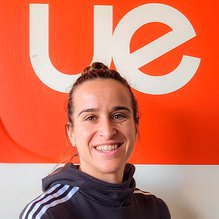
Maria Luisa Martín de San Pablo
Director of the Permanent Training Master’s in Big Data and Sports Data Analysis.
Our teaching staff
- Anselmo Ruiz de Alarcón
Data Analyst for the United States National Soccer Team. Former analyst at Chelsea and Athletic Club de Bilbao. Former Head of Real Betis, Double Pass, and Project Consultant for youth academies. - Javier García Rodríguez
Data Sports at Sevilla FC, Real Valladolid CF, and UD Las Palmas. Professor and Analyst specialized in Sports Data Analysis and Big Data. - Jesús Lagos Milla
Founder and Head of ScoutAnalyst. Expert in R. - Pablo Sanzol
Data Sports at Deportivo Alavés, former Data Sports at SD Eibar. Professor and Analyst specialized in Sports Data Analysis and Big Data. - Josselin Juncker
Analyst at Leeds United, Sevilla FC, Granada CF, CE Sabadell, CD Badajoz, and former student of the Master’s in Football Management. - Miguel Ferreira
Data Sports at Sporting CP. Expert in Python and Scouting. - Pablo Quíntela
Data Sports at Mercanza and specialist in Tableau and Power BI visualization. - Mathieu Lacome
Head of Performance Department at Parma Calcio. - Manuel Lapuente Segarra
Founder of SmartPerformance. - Rubén Saavedra
Head of Metrica Sports. - Xavi Camps
Scout in the Technical Secretariat of Levante UD, former Head of Talent Recruitment for Levante’s Youth Academy in Aragón and Catalonia. - Carlos Urbano
Head of Innovation at BeSoccer. - Francisco Sánchez
Former Sporting Director of Real Valladolid CF. - Mauro Pérez
Sporting Director at CD Tenerife. - Chema Aragón
Former Sporting Director at CD Mirandés. - Oscar Bartolomé
Data Analyst and Founder of Data Kicks. - Jorge López Valero
Data Analyst and Data Engineer specialized in football. - Francisco Frota
Football Data Analyst at Lech Poznań. - Álvaro Reina Gómez
Performance Analyst and Scout. - Marco Couto
Sporting Director at Moreirense FC.


